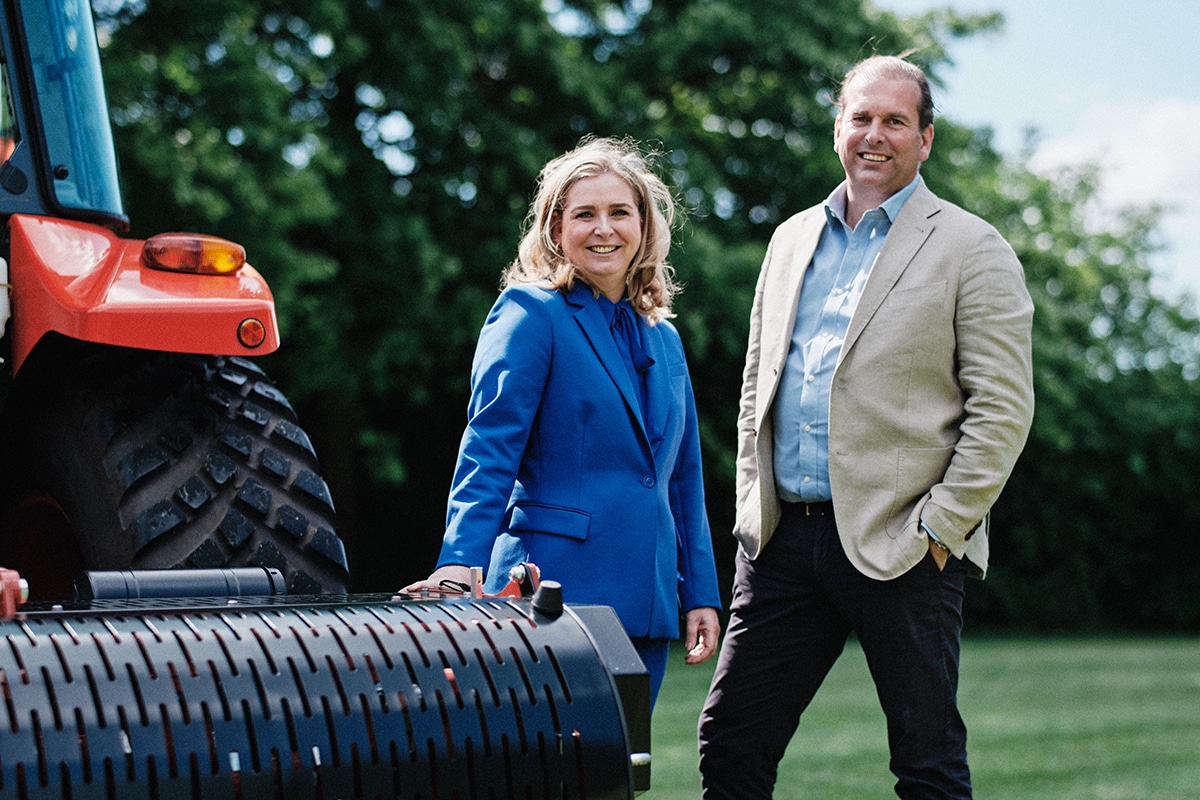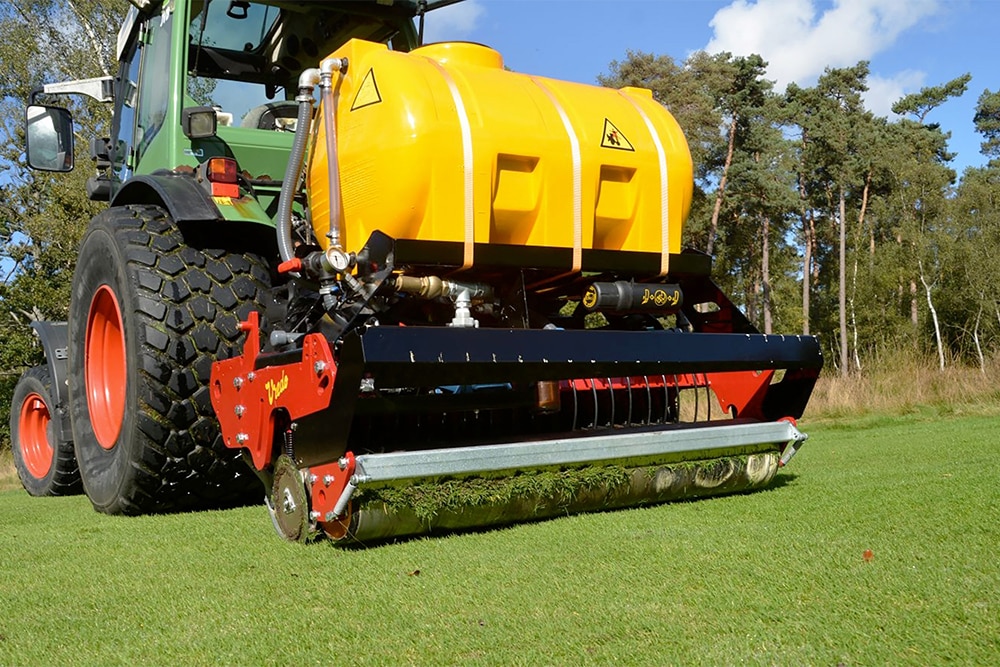
Climate-proofing natural grass fields
Construction and maintenance of sports fields
The outdoor sports fields have been soggy for the past few weeks. Numerous trainings and matches were canceled because the fields were unplayable. It is probably just a foretaste of what is yet to come due to climate change. That is the opinion of Steven Mattelin, site manager at landscape contractor Krinkels. He likes to explain how a good soil structure, water permeability and professional maintenance keep a natural grass field in top shape.
Experienced partner in the world of sports
Sports clubs and organizations all over Belgium call on Krinkels to maintain their grass fields. Site manager Steven Mattelin mentions a few names as examples: "KV Oostende, SK Deinze, Sport Vlaanderen, the grounds of Ghent, Oostende, Charleroi, Antwerp... We are also often called in to prepare squares for European and international competitions, such as at the Kevin De Bruyne Cup last summer."
A team of thirty workers is in charge of maintaining some 320 sports fields. "In the winter they are not all working continuously on the squares of course, but in the regeneration season and the high season the team is running at full speed," said Steven Mattelin.
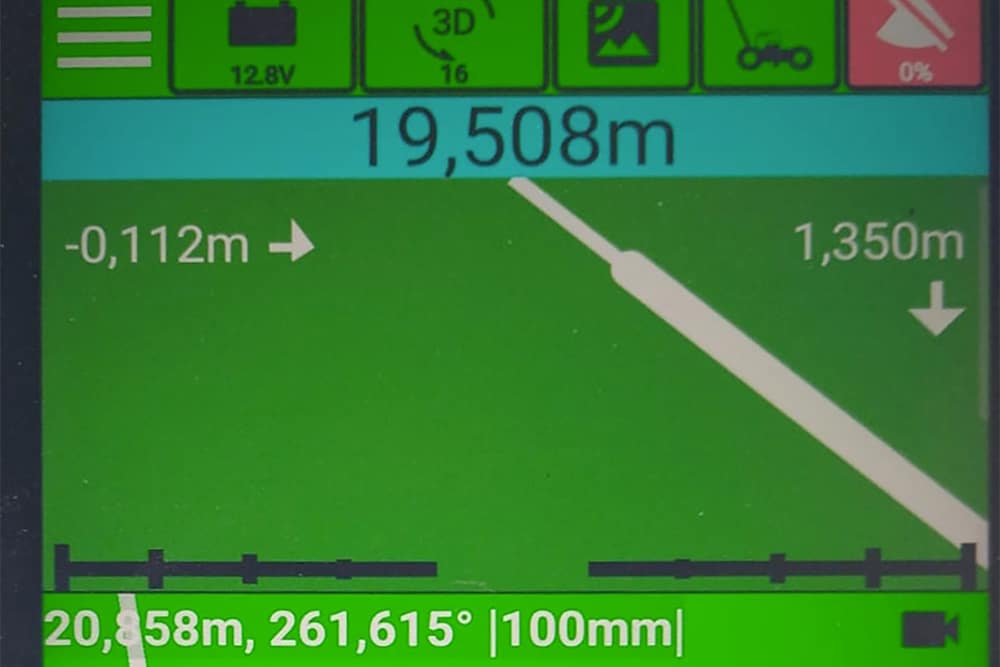
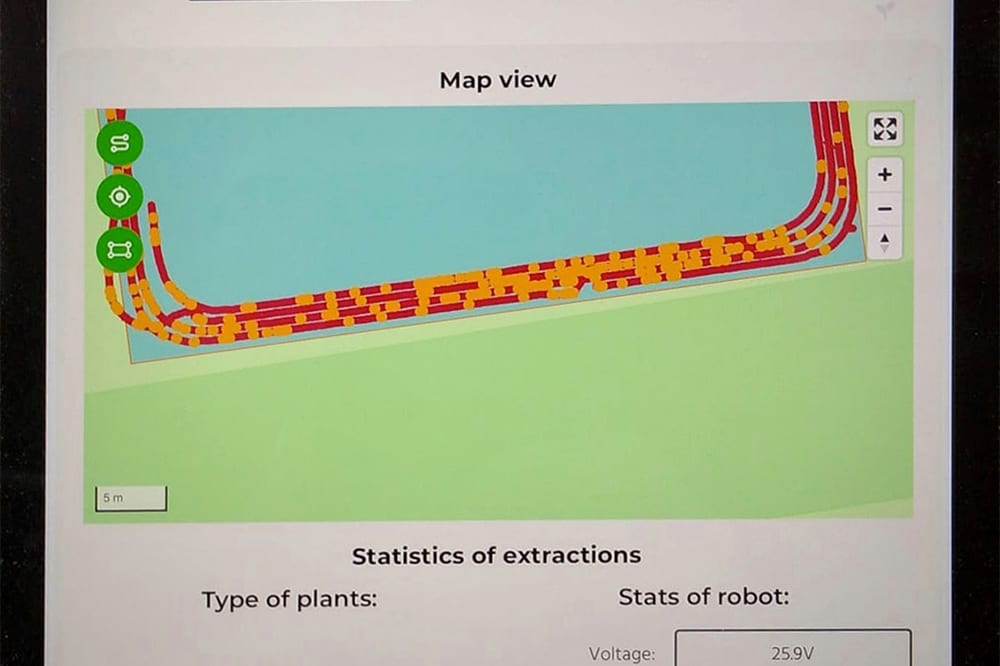
Soil takes the lead
Every year, Krinkels lays about 20 new sports fields. "Prior to the groundwork, it is best to conduct a granular soil survey. The cost of such a survey is negligible. Based on this analysis, the soil can be treated so that the top layer has the ideal composition. With what we learn from it, we can greatly increase the playability of the natural grass field," Mattelin says. "The regret is that the budget for the construction of a natural grass field is many times lower than the budget for the construction of an artificial turf field."
"With a clay content above five percent, we silt up the top layer. Otherwise water permeability is insufficient, which is detrimental to playability in wet periods. In heavy soil, the grass also does not root as well, and then there is quick play damage. This causes unevenness and open spots, where weeds get free rein if they are not quickly reseeded."

Scoring on teal levels
Krinkels signed the Green Deal Sports Grounds. "Our company is therefore committed to efficient water management on sports grounds. This is not only good for nature," says Mattelin, "it also promotes the playability of the fields. We ensure that rainwater infiltrates as far as possible locally and is collected for use in dry periods. We do this mainly by softening and constructing wadis and ponds around the squares, and with infiltration crates to buffer water."
Krinkels also promotes biodiversity around the squares. Pest and weed control is carried out as ecologically as possible. Steven Mattelin explains: "Only in exceptional, extreme cases do we still use chemical agents, and then only in extremely accurately dosed quantities. We control grubs with the Vredo Fluid Feeder. It injects nematodes into the soil, and these parasitize the harmful beetle larvae. To remove weeds, we scarify and weed the turf, among other things. For weeds with pen roots, we deploy our weed robot Violette."
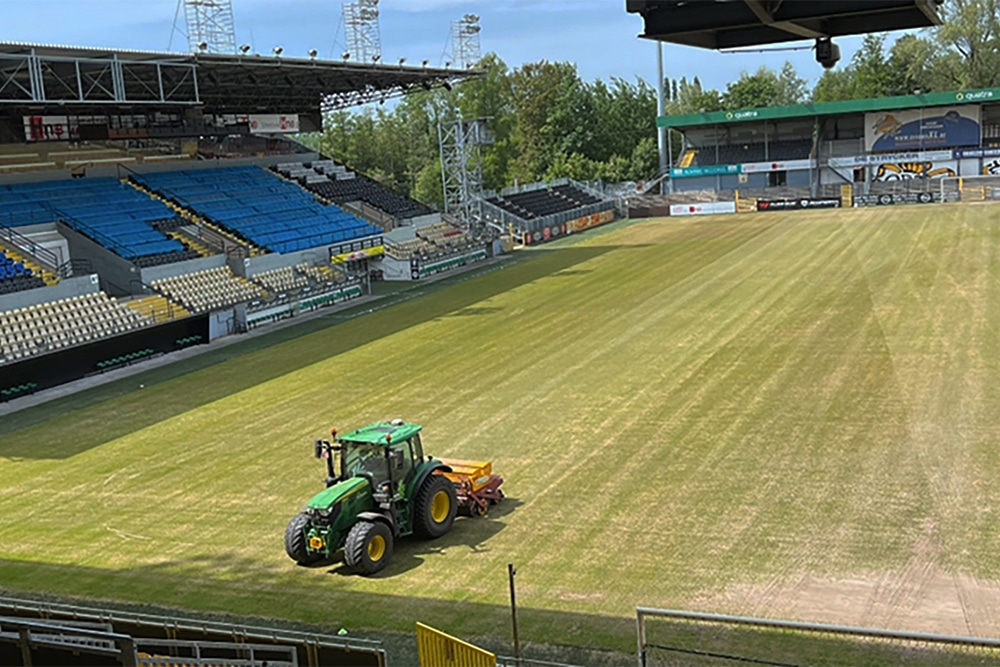
Robots on the kickoff
Vredo Fluid and Violette are not the only innovations. "We are also deploying more and more robotic mowers. We rent them out with service included: replacing blades, monitoring operation remotely, adjusting working hours according to the hours of operation... We also rely on robotics for line marking. Our new line marking robots work with GPS and laser, so that their operation remains flawless even under large trees and light masts and surrounded by stands," Mattelin concludes.
Heeft u vragen over dit artikel, project of product?
Neem dan rechtstreeks contact op met Krinkels nv.
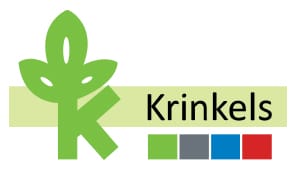 Contact opnemen
Contact opnemen

